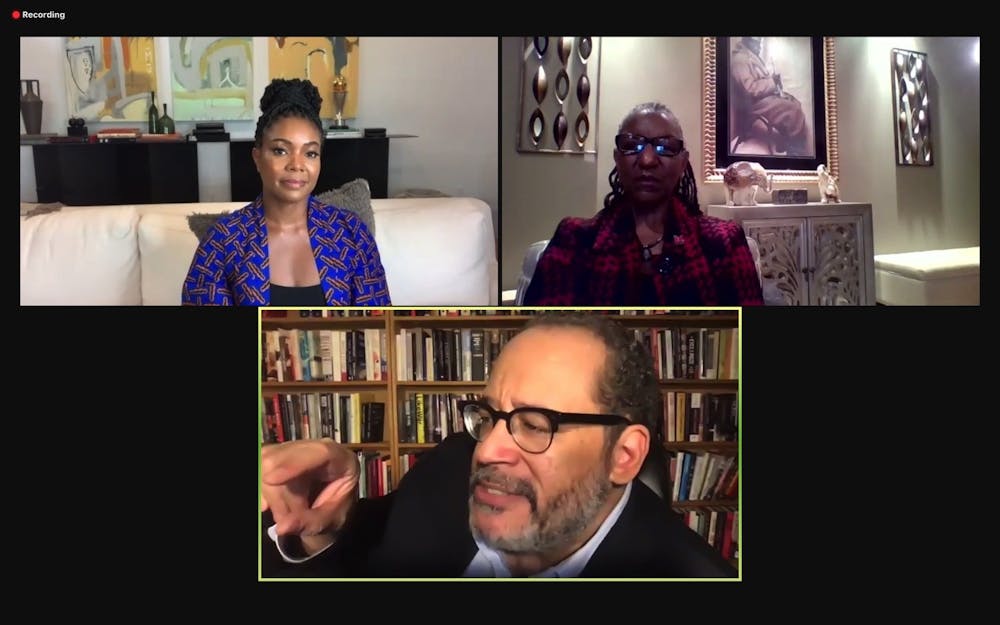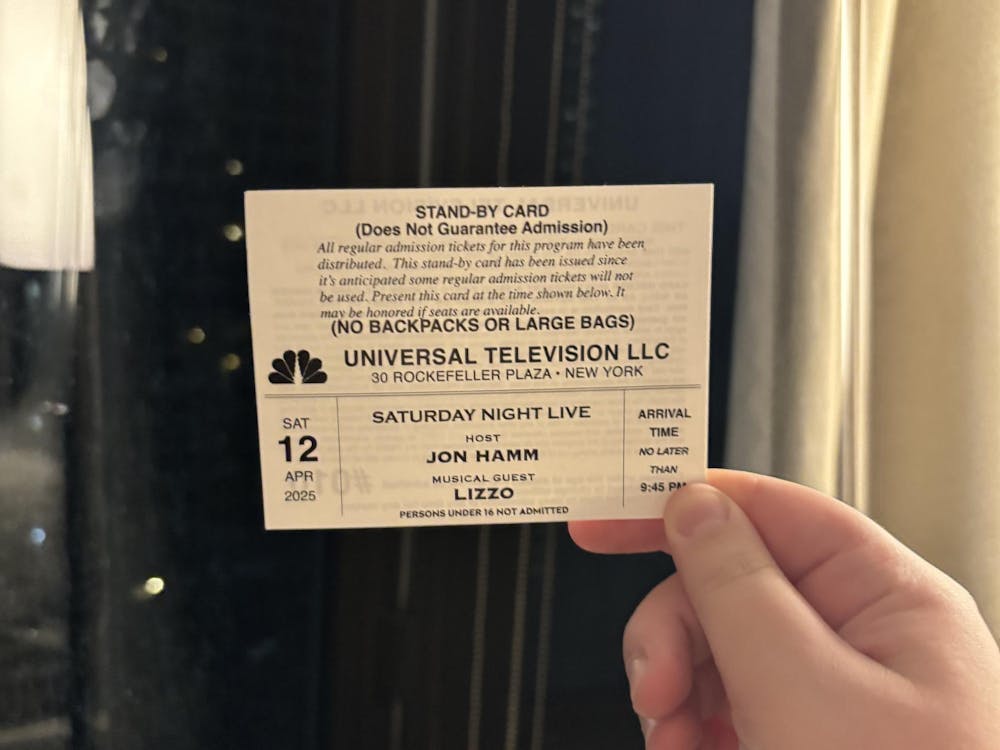Despite the fact that there appeared to be no audience at the event due to technical limitations, the passion that emanated from the two speakers’ sermon-esque words invoked the spirit of Martin Luther King Jr. himself.
The Miami University lecture series hosted “BLM: Artists, Academics and Activism” as its first and only lecture of the year, having to work within the confines of remote learning.
Gabrielle Union, an award-winning actress, famous for movies such as “Bring It On” and “10 Things I Hate About You,” and Michael Eric Dyson, a New York Times best-selling author and ordained minister, spoke at the lecture about the Black Lives Matter (BLM) movement Monday, Oct. 5 at 7:30 p.m. on Zoom.
Logan Fry, a senior political science major and committee member for the university lecture series, helped plan and host the event. He said the committee knew BLM would be an important topic of conversation with the onslaught of police brutality and protests across the U.S. in the past few months.
“We figured, what better time to try to educate the students of Miami on these very important issues and have this conversation?” Fry said. “And what better way to do it than with two intellectuals that have lived [through] the issues we’re talking about?”
The lecture, moderated by Bennyce Hamilton, regional director of diversity services and deputy Title IX coordinator for Miami Hamilton, was a Q&A-style discussion focused on activism and the BLM movement.
Union and Dyson spoke to their experiences as Black Americans, explaining their personal familiarity with racism and segregation. Although they grew up during vastly different times of history — Dyson during the civil rights movement of the 1960s, and Union more than a decade later — their dedication to being activists was shared.
“When you threaten my humanity, when you don’t even see my humanity, you need to fight fire with fire,” Union said. “And I had to learn how to weaponize my words, to stand up for myself and everyone else.”
For everyone in the U.S., 2020 has been a year to remember with a pandemic and racially-motivated tragedy, not to mention a presidential election coming up. But for Black people, Dyson explained, coronavirus and police brutality have impacted their fundamental right to live.
“What joins them together?” Dyson said. “What is the cry that each of them have — a spongy lung and a vulnerable body? ‘I can't breath.’ COVID and cops rendering the same pressure and the same consequence.”
The renewed attention on the BLM movement in response to this pressure has also resulted in renewed attention from the other side — people advocating for “blue lives” or those who say “all lives matter.”
Dyson made an important distinction.
Enjoy what you're reading?
Signup for our newsletter
“A cop is a choice,” he said. “A cop is a profession. This skin I'm in? This ain't no choice. This is what I was born with.”
All lives should matter, Dyson said, but until they all do matter, there’s still work to be done.
With this activism, though, comes obstacles. Speaking up and speaking out, Union said, could lead to lost jobs, lost relationships or even lost lives. There’s also an economic aspect, with education, protests and legal rights requiring financial resources.
But the biggest obstacle Union said? Yourself.
She explained that sometimes the line between doing right to boost your ego and wanting to do right because it’s the moral thing to do can become blurred.
“It's not about who's going to get credit for what,” Union said. “It's about ‘how many people can we help?’ What can we do to help the greater good, and we should not be centered in that.”
To overcome the obstacle of yourself, Dyson emphasized the importance of taking care of yourself. He said if he could give any gift to the civil rights activists, it would be that of self-care. He also advised on the need for personal grace.
“If I were to pass anything on to young people, in that sense,” he said, “it’s to forgive yourself, give yourself enough space to grow.”
At the end of the lecture, Union and Dyson gave advice to students dealing with racism and discrimination on campus. Dyson said students need to remember their responsibility of paving the way for future generations by speaking out against injustices now.
Union said it all comes down to simple economics.
“You are paying for an equal education,” she said, “and if your education has been marred with racism, homophobia, transphobia, Islamophobia — you’re not getting the same education as your white peers. You’re getting less than everyone else, and that’s just pure economics. You should get what the hell you paid for.”
Fry said the university lecture series will not be holding any more events this semester but is in the process of planning more for next semester.




